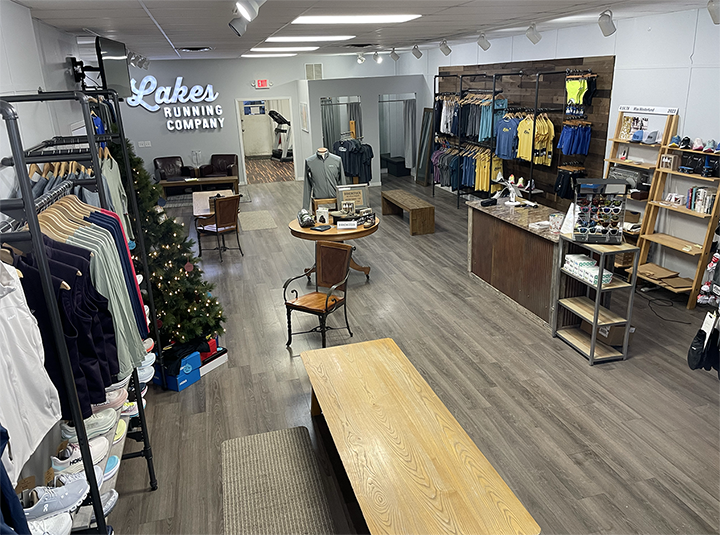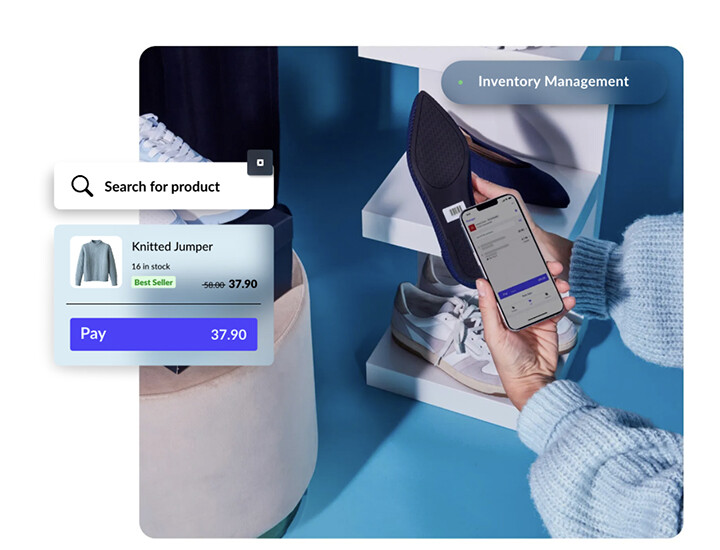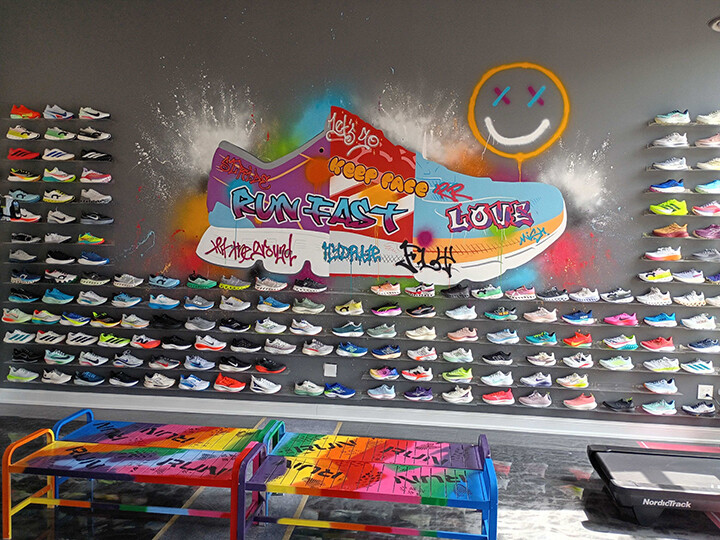Run specialty retailers across North America have either opened their stores – with strict limitations in most cases – or are getting ready for the big day, all depending on the rules in their regions. So there was a definite sense of optimism that hasn’t been felt in the industry for quite some time on the Virtual Town Hall organized by Running Insight and The Running Event on Thursday, May 21.
With so many stores doing so many different things – and not sure what works and what doesn’t at this point – the Virtual Town Hall opened up the lines for retailers to share their experiences and offer advice to one another.
This “we are all in this together” spirit is certainly what makes the run specialty unique among retail businesses.
Consultant Parker Karnan, who works with 17 different stores, stressed that opening strategies out of necessity vary state-by-state, even county by county, with local regulations determining just how and when they can open. He had some plain and simple advice for retailers no matter what stage of opening they were in.
“First thing is managing the virus and the spread of it and making your employees feel safe,” He said. “Your store has to be an environment that your employees feel they can work in.
“And you have to manage the fear of your customers,” he added.
How to do that is the question of the day for run specialty.
(One positive that many stores reported was that the number of transactions are down, but stores that have had scheduled appointments are seeing the average sale up 10-20 percent. That, Karnan, added, raises the question of what role appointments will play going forward and is there a place for scheduling appointments that hasn’t been there in the past.)
Retailers Speak Up
As they usually do, retailers around the country had a lot to say on how their openings – or planned openings – are faring in a COVID-19 world.
Michelle Allen, of iRun Texas, reported that the situation in Texas has been strong — they have been open for two weeks, with up to 25 percent capacity in the store at any given time, which is a fairly normal percentage for the store anyway.
“If it does get crowded we have a signup sheet and a greeter who will call them when we are ready for them,” she said. Face masks are required and extended cleanings are the norm, but they have not gone with scheduled appointments yet. “People are glad that we are open back up and are excited to be shopping,” she said, adding that both their number of transactions and average dollar value per transaction are looking up.
Meanwhile, in Maryland Josh Levinson, of Charm City, said that after a few false starts that hurt morale – and sales -- two of his seven stores opened last week and its biggest store is opening today (May 22) with two fitting stations inside and two outside. “We are going to be ready,” he said, reporting that after an initial surge online fittings have dissipated but certainly won’t disappear. “That will be a part of our future to bring our service to their living room,” he said.
His employees have been enthusiastic, “but to say that people aren’t nervous at all would be a lie. But they are very excited and most can’t wait to get to work.”
He, too, reports strong conversion rates even during the pandemic. “Now people are being very intentional about where they go and when they show up they want to be there and they want to buy,” Levinson said. “They aren’t coming to Charm City to kill time; they are coming to do business.”
Anders Brooker, whose Runner’s Edge in Missoula, MT was closed for April, reopened his one store on May 1 with appointment-only selling even though the state of Montana allows for a bit more — a conversion rate coupled with a transaction jump that was up $40 eased the pain a little. “It’s been a success for us,” he said.
“We want to be leaders in our community,” Brooker added. “In Montana you can just open up, but we are being conservative. After June 1 it may be a hybrid. We found success with the appointments.”
Meanwhile, Jennifer Henderson of Running Niche, in St. Louis, just opened on Monday and is only allowed to have four people in the store at a time. “We have been busy every day and people are coming in to buy,” she said.
The first hour of the day is reserved for appointments only, which means that every person is getting one-on-one service. “That is going great in terms of sales because people are waiting to come in,” she said, reporting that recently two ladies came in and spent $1200. “People feel very taken care of in that situation.”
Up in the Live Free or Die state, Tyler Hart, of Marathon Sports, which owns stores in New Hampshire, Massachusetts and Connecticut, must adhere to three different sets of opening rules. “Everyone in New Hampshire seems to want to live, so they are also listening to the protocols,” he said, and they are opening with curbside pickup in Massachusetts next week.
“There’s a paradigm shift and the now normal is face masks and queuing,” he said. “We aren’t doing appointments, but we’ll take your name and call you when we are ready for you.”
Even though Nick Walker’s three locations in Victoria, Canada, are fairly isolated with few COVID-19 cases being reported recently, the stores remain closed as they prepare to reopen next week. “We are taking every precaution before we open up,” he said, before speaking for everyone when he added: “It’s good to see we are all in the same s***y situation.”
Run Clubs, Contamination and Landlords
Three other topics were on the top of the minds of the retailers at the Virtual Town Hall — contamination of clothes and shoes during fittings, what to do about group runs and, of course, the landlord situation
Contamination
Every retailer has to deal with the challenge of cross-contamination of shoes and apparel that are tried on in the store, with various solutions offered.
Tiffany Piotrowicz, owner of TerraLoco in Minnesota, said they require the customer to sit down right inside the door, apply hand sanitizer, then remove their shoes and socks.
“We have them put on a pair of our socks, then we have a pair of slides for them to put on if they want to move to our try-on area,” she said. “We are requiring either a virtual fitting or a pre-screening phone call so we have some product ready for them so we are not doing whole fitting process in store. They are only touching the shoes and since they have sanitizer and a mask there is no cross contamination.”
Kris Hartner, of Naperville Running Co., has not opened yet but his plan is to have every person entering the store step into a cleaning tray and have their shoes sprayed so they can then they can walk in the store and take their shoes off in the fitting area.
Group Runs/Run Clubs
Betsy Hughes of Track Shack in Orlando, said they have not started weekly runs from the store yet because they always got 40-50 people, which is way beyond allowable limits these days. Instead, they are limiting training runs to 10 people. If 20 runners sign up they make sure to have two coaches. And, there is no hydration support from the store, nor do they store car keys as they have in the past
Levinson, of Charm City, reported that they are starting training groups with no more than 10 people, six feet apart. They may actually do shotgun starts for group runs and training.
Landlords
Paying rent is a challenge when you have very little sales coming in and this is perhaps the greatest challenge to survival these days. Again, different stores have different solutions.
Jennifer Henderson, of Running Niche, said her landlord offered to let them use their two-month security deposit to help forego paying rent for the two months they were closed. “He felt safe allowing us not to have any security deposit and we will pay our regular rent when we reopen on June 1,” she said.
Eddie Johnson, of A Snail’s Pace in California, said he initially wrote landlords for total abatement for two months and then offered 5 percent of sales up until they reached their regular rate. “It was met with varying degrees of acceptance,” he said. “I encourage all of you to not be afraid to let them know you don’t have the money.”
And Levinson had one final piece of advice for store owners whose landlords feel that if they received the federal PPP then they were obligated to pay the rent for those months. “Just because you got the PPP doesn’t mean you have to spend it on rent,” he said. “There are lots of ways to skin a cat, but just because you go that money doesn’t mean you give it to them.”






